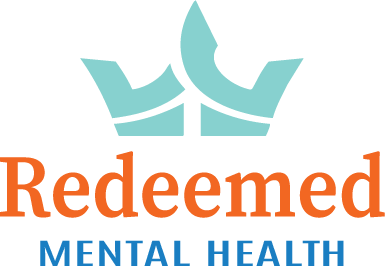 The field of mental health has witnessed significant transformations over the years. One such paradigm shift is the adoption of the Recovery Model, a holistic, person-centered approach that emphasizes patient-directed recovery. This model has revolutionized how professionals, like myself, Dr. Andrea Wagner, approach mental health care. In this article, we’ll delve deep into the core principles of the Recovery Model and understand its significance in today’s therapeutic landscape.
The field of mental health has witnessed significant transformations over the years. One such paradigm shift is the adoption of the Recovery Model, a holistic, person-centered approach that emphasizes patient-directed recovery. This model has revolutionized how professionals, like myself, Dr. Andrea Wagner, approach mental health care. In this article, we’ll delve deep into the core principles of the Recovery Model and understand its significance in today’s therapeutic landscape.
The Evolution of the Recovery Model
Historically, mental health treatment was often rigid, with professionals dictating the terms of treatment. However, as understanding evolved, so did the approach. The Recovery Model emerged as a response to the need for a more inclusive, patient-centric approach1.
Historical Context and the Shift Towards Patient-Directed Recovery
The late 20th century saw a growing movement advocating for the rights and voices of mental health patients. This movement, combined with research and clinical observations, paved the way for the Recovery Model. The model’s emphasis on individual strengths, personal experiences, and cultural backgrounds has made it a cornerstone in modern mental health care.
- Importance of self-advocacy in treatment.
- Shift from a one-size-fits-all approach to individualized care.
- The role of cultural and personal experiences in shaping recovery.
Key Principles of the Recovery Model
The Recovery Model is underpinned by several core principles that guide its approach. These principles emphasize the individual’s role in their recovery journey and the importance of a holistic perspective2.
Self-Direction and Its Significance
At the heart of the Recovery Model is the belief that individuals should be the primary decision-makers in their recovery journey. This principle of self-direction empowers individuals to choose the paths and treatments that resonate most with their experiences and goals.
The Role of Individualized and Person-Centered Care
Every individual’s journey with mental health is unique. Recognizing this, the Recovery Model emphasizes treatments and approaches tailored to each person’s strengths, needs, and cultural backgrounds. This individualized approach ensures that care is relevant, effective, and respectful.
Empowerment in the Recovery Journey
Empowerment is about giving individuals the tools, knowledge, and confidence to take charge of their recovery. It’s about ensuring that they have a voice in their treatment and that they are equipped to make informed decisions.
The Holistic Approach: Treating the Mind, Body, and Spirit
Recovery is not just about addressing mental symptoms. It’s about looking at the individual as a whole – their mind, body, and spirit. Whether it’s through traditional therapies, alternative treatments, or activities like beach walks, a holistic approach ensures comprehensive care.
Strengths-Based Approach in Recovery
Building on an individual’s strengths is a cornerstone of the Recovery Model. Instead of focusing solely on symptoms or challenges, this approach emphasizes the positive attributes and capabilities of the individual3.
Building on Individual Strengths
Every individual brings a unique set of strengths to the table. Whether it’s resilience, creativity, or determination, these strengths can be harnessed to aid in the recovery process. By recognizing and building on these strengths, individuals can find renewed purpose and motivation in their journey.
The Power of Peer Support in the Recovery Process
Peer support plays a pivotal role in the Recovery Model. Connecting with others who have shared similar experiences can provide invaluable insights, encouragement, and understanding. Peer support groups, whether formal or informal, offer a safe space for individuals to share, learn, and grow together.
The Role of Respect and Responsibility
Two foundational pillars of the Recovery Model are respect and responsibility. These principles emphasize the mutual respect between professionals and individuals and the shared responsibility in the recovery journey.
The Importance of Mutual Respect in Therapy
Respect is a two-way street. For therapy to be effective, there must be mutual respect between the mental health professional and the individual. This respect acknowledges the expertise of the professional and the lived experiences of the individual, creating a collaborative environment conducive to healing.
Taking Responsibility for One’s Own Recovery Journey
While professionals provide guidance and support, the Recovery Model emphasizes the individual’s responsibility in their healing journey. This means actively participating in therapy, setting and working towards goals, and making informed decisions about treatment options.
Hope: The Central Pillar of Recovery
Hope is perhaps the most powerful driving force in the recovery journey4. It’s the belief that recovery is possible, that better days are ahead, and that challenges can be overcome.
Stories of Hope and Resilience
Throughout history, countless individuals have faced and overcome mental health challenges. Their stories of resilience, determination, and hope serve as a beacon for others on a similar journey. Drawing inspiration from these stories can provide motivation and a renewed sense of purpose.
How Hope Drives the Recovery Process
Hope is not just a passive wish; it’s an active force that propels individuals forward. It’s the belief that challenges can be surmounted, that healing is attainable, and that a fulfilling life is within reach. This hope, combined with the right support and resources, can make all the difference in the recovery journey.
Modern Techniques and Treatments
The field of mental health is ever-evolving, with new techniques and treatments emerging regularly. Staying informed about these advancements ensures that individuals receive the most effective care tailored to their needs.
Cognitive Behavioral Therapy (CBT) in Addressing Depressive and Anxiety Symptoms
CBT is a widely recognized and effective treatment for a range of mental health challenges, including depression and anxiety. It focuses on identifying and challenging negative thought patterns, equipping individuals with tools to manage and overcome their symptoms.
The Rise of Recovery Colleges and Their Impact
Recovery colleges offer courses designed to support individuals in their mental health journey. These courses, often co-designed and co-delivered by professionals and individuals with lived experience, provide valuable insights, skills, and strategies for recovery.
The Importance of Setting Goals in Recovery
Goal-setting is an integral component of the Recovery Model. It provides direction, motivation, and a sense of purpose, guiding individuals towards meaningful milestones in their recovery journey5.
Tailoring Goals to Individual Needs
Every individual’s recovery journey is unique, and so should be their goals. Tailored goals, aligned with personal values, aspirations, and circumstances, ensure that the recovery process is relevant and resonates with the individual’s life vision.
The Role of Professionals in Guiding Goal Setting
 While individuals take the lead in their recovery, professionals play a pivotal role in guiding and refining goal-setting. With their expertise, they can help individuals set realistic, achievable goals, ensuring a balanced and holistic approach to recovery.
While individuals take the lead in their recovery, professionals play a pivotal role in guiding and refining goal-setting. With their expertise, they can help individuals set realistic, achievable goals, ensuring a balanced and holistic approach to recovery.
The Wellness Recovery Action Plan (WRAP)
WRAP is a self-designed plan that aids individuals in navigating the challenges of mental health. It’s a structured system that emphasizes self-awareness, early intervention, and proactive strategies to manage and enhance well-being6.
An Overview of WRAP
WRAP is a personalized tool that individuals create for themselves. It includes components like wellness tools, daily maintenance plans, triggers and action plans, early warning signs, and crisis planning. By identifying potential challenges and having a plan in place, individuals can navigate their recovery journey with confidence.
Its Significance in the Recovery Journey
WRAP empowers individuals, giving them control and autonomy over their mental health. It’s a testament to the Recovery Model’s emphasis on self-direction and individual agency. With WRAP, individuals can proactively manage their well-being, ensuring they have the resources and strategies to face challenges head-on.
Challenges in the Recovery Journey
While the Recovery Model offers a hopeful and empowering approach, the journey is not without its challenges. Recognizing and addressing these challenges is crucial for sustained recovery and growth.
Addressing Setbacks and Hurdles
Setbacks are a natural part of the recovery journey. Whether it’s a relapse, external stressors, or personal challenges, it’s essential to approach setbacks with compassion and resilience. With the right support and resources, these challenges can be transformed into opportunities for growth and learning.
The Importance of a Support System
A robust support system, comprising family, friends, peers, and professionals, can make all the difference. This network provides encouragement, understanding, and resources, ensuring that individuals never feel alone in their journey.
Embracing a Holistic Approach to Recovery
The Recovery Model’s strength lies in its holistic approach, recognizing that mental well-being is influenced by a myriad of factors, both internal and external.
Integrating Physical and Mental Health
Physical and mental health are deeply intertwined. Activities like regular exercise, a balanced diet, and adequate sleep play a pivotal role in supporting mental well-being. Recognizing and addressing physical health needs can significantly enhance the recovery process.
The Therapeutic Benefits of Nature
Connecting with nature, whether it’s a walk on the beach or a hike in the mountains, offers therapeutic benefits. Nature provides a serene environment, helping individuals relax, reflect, and rejuvenate. Such experiences, as offered by Redeemed Mental Health, can be instrumental in the healing process.
Conclusion: The Future of Mental Health Recovery
The Recovery Model has revolutionized the mental health landscape, shifting the focus from mere symptom management to holistic, person-centered care. As we look to the future, it’s evident that this model will continue to play a pivotal role, guiding professionals and individuals alike towards a more inclusive, empowering, and effective approach to mental health recovery.
For those seeking guidance, support, or resources, remember that you’re not alone. Organizations like Redeemed Mental Health are here to help, providing a safe space and a holistic approach to ensure that every individual’s recovery journey is successful and fulfilling.
Frequently Asked Questions
The Recovery Model is a holistic, person-centered approach to mental health care. It emphasizes individual empowerment, hope, and self-direction, focusing on a person’s strengths and capabilities rather than just their symptoms.
Unlike traditional treatments that primarily focus on symptom management, the Recovery Model prioritizes the individual’s goals, aspirations, and well-being. It recognizes that recovery is a unique and personal journey, emphasizing collaboration, respect, and self-determination.
The core principles include hope, personal responsibility, self-direction, empowerment, respect, and a holistic approach. These principles guide both individuals and professionals in the recovery journey.
The Recovery Model acknowledges the deep connection between physical and mental health. It promotes activities like regular exercise, a balanced diet, and adequate sleep as essential components of overall well-being and recovery.
Hope provides the belief that recovery is possible, that challenges can be overcome, and that a fulfilling life is attainable. It acts as a driving force, motivating individuals to actively participate in their recovery journey.



























